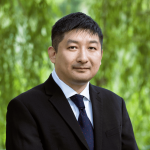
Research integrity and governance
The University of Surrey is proud to undertake excellent research to the highest level of integrity and ethical responsibility, working closely with its students, businesses, government and civil society to transition knowledge to the benefit of humanity.
Acting with integrity
Every member of the University is expected to act with integrity in their work, and this is endorsed in the code on good research practice (PDF) which provide a guide for all research throughout the University.
View all our research-related policies on the University of Surrey's policies page, including:
Concordat to support research integrity
We are committed to delivering the principles set out in the concordat to support research integrity, launched in 2012. As part of this commitment, the University maintains an action plan highlighting where improvements to existing process and training could be made.
Previous published statements
Research Integrity and Governance Office (RIGO)
Research Integrity and Governance Office (RIGO), Research and Innovation Services, Senate House Guildford, Surrey GU2 7XH.
- Phone: +44 (0)1483 683490 / 683890
- Fax: +44 (0)1483 683791.
Research integrity queries and allegations of research misconduct
Email: integrity@surrey.ac.uk
Ethical review queries
Email: ethics@surrey.ac.uk
Other enquiries
Email: rigo@surrey.ac.uk.
Who to contact
The Associate Deans for Research and Innovation and Director of the Doctoral College may be contacted with any issue related to research integrity, or to report a concern of research misconduct.
They are supported by the Research Integrity and Governance Committee and the Research Integrity and Governance Office (RIGO).

Dr Allan Kilner-Johnson
Interim Dean of Doctoral College
Biography
My research focuses on the psychoanalytic implications of narrative absence and elision (i.e., the unsaid and unspeakable) in twentieth-century literature to demonstrate how these textual gaps reveal the complex entanglement of subjectivity and narrative form. I am the author of Alan Hollinghurst and the Vitality of Influence (Palgrave Macmillan, 2014), Masculine Identity in Modernist Literature (Palgrave Macmillan, 2017), The Sacred Life of Modernist Literature: Immanence, Occultism, and the Making of the Modern World (Bloomsbury, 2022), and numerous articles and chapters on literary modernism.
I am the former editor of Correspondences: Journal for the Study of Esotericism. I served as Associate Dean (Doctoral College) for the Faculty of Arts, Business, and Social Sciences from 2019 to 2025, where I supported doctoral researchers and worked to foster an environment that encouraged academic excellence and interdisciplinary collaboration, particularly through my involvement with AHRC and ESRC Doctoral Training Partnership leadership.
I welcome PhD proposals that engage with modernist literature, particularly projects that explore its intersections with contemplative studies, philosophy of mind, and esotericism.

Professor Rachel Brooks
Associate Dean for Research and Innovation, Faculty of Arts and Social Sciences
Biography
I am currently Professor of Sociology and Associate Dean for Research and Innovation for the Faculty of Arts and Social Sciences. I have previously held roles as Head of the Department of Sociology (2012-16) and Associate Dean for the Doctoral College (2017-19). I am editor-in-chief of Sociology, an executive editor of the British Journal of Sociology of Education, co-editor of the 'Research into Higher Education' book series, a member of Governing Council of the Society for Research into Higher Education, and a member of ESRC Council. I was also a member of the education sub-panel for REF 2021.

Professor Jin Xuan
Associate Dean for Research and Innovation, Faculty of Engineering and Physical Sciences
Biography
Professor Jin Xuan joined the University of Surrey as the Associate Dean of Research and Innovation for the Faculty of Engineering and Physical Sciences in September 2022. He holds a Chair in Sustainable Processes and a prestigious EPSRC Open Fellowship at the School of Chemistry and Chemical Engineering. He is also a Turing Fellow at The Alan Turing Institute. Before moving to Surrey, he was the Head of the Department of Chemical Engineering at Loughborough University.
Professor Xuan has won a number of prizes and awards in recognition of his research excellence. He is the recipient of the Philip Leverhulme Prize of Engineering in 2022 for his pioneering research on Energy and AI, the Beilby Medal and Prize, jointly from the Society of Chemical Industry (SCI), the Royal Society of Chemistry (RSC), and the Institute of Materials, Minerals and Mining (IOM3) in 2020 for his work that ‘has exceptional practical significance in chemical engineering, applied materials science, energy efficiency or a related field’, and the International Association for Green Energy (IAGE) Technology Innovation Award in 2025 for "pioneering innovative electrochemical techniques exemplifying the principle of circular economy, while promoting environmental sustainability and economic growth". He led the UKRI CircularChem Centre winning the IChemE Global Award for Sustainability in 2023 and the RSC Environment, Sustainability and Energy Horizon Prize: John Jeyes Prize in 2025. He led the Surrey team being part of the Flue2Chem project, named as the UK National Winner of the 2025 Net-Zero Industries Award, announced at COP30.
Professor Jin Xuan is a recognised leader in enterprise and commercialisation, with a strong track record of translating academic innovation into real-world impact. He is the Co-founder and Chief Technology Officer of R3V Tech, developing next-generation circular economy technologies for the chemicals and fuels industries. Under his leadership, R3V Tech has received more than half million GBP funding and been selected for the Shell StartUp Engine and the Royal Society of Chemistry CleanTech Accelerator Cohort. More recently, Professor Xuan also serves as the Principal Academic Advisor to EcoShift.AI, applying artificial intelligence to optimise industrial decarbonisation.
Professor Xuan actively takes leadership in the wider research community. He is an EPSRC Strategic Advisory Team (SAT) member for Energy and Decarbonisation, and a member of the Research, Innovation & Knowledge Transfer Committee of the Engineering Professors’ Council.
Prof Xuan contributed to the establishment of the emerging Energy and AI research community globally. He is the Founding Editor-in-Chief of Digital Chemical Engineering (IChemE), the Founding Editor of Energy and AI (Elsevier), and the co-chair of the International Conference of Energy and AI series (Tianjin 2020, London 2021, Belfort 2022, Xining 2023, Ningbo 2024, Reykjavik 2025). In his Editorial of Energy and AI, he provided a strategic overview in this interdisciplinary research area including wider societal issues such as ethics, morality, policy and law.
Professor Xuan is an advocate for Responsible Assessment. He was interviewed by Nature as part of a news item China bans cash rewards for publishing papers, where he provided his expert view on policy development for proper use of journal metrics in research evaluation. He also actively promotes EDI in the wider research community. He serves as a member of the EPSRC's EDI Strategic Advisory Group and the EDI Champion in the EPSRC Energy SAT. He is the leading author of The equality, diversity and inclusion in energy and AI: Call for actions.

Professor Daniel Horton
Associate Dean for Research and Innovation, Faculty of Health and Medical Sciences
Biography
Dan graduated as a veterinarian from the University of Cambridge, UK, with an intercalated MA in zoology in 2002. After a period in mixed and second opinion exotic animal veterinary practice he completed an MSc in Wild Animal Health in London in 2005. He then undertook a PhD working at Cambridge University, the APHA and CDC Atlanta USA, on zoonotic viral diseases of wildlife.
He completed his PhD in 2009 and joined the Virology Department at APHA Weybridge, undertaking surveillance and research programs for viral diseases of wildlife. Since February 2014 he has been at the School of Veterinary Medicine as a Lecturer, promoted to Senior Lecturer, Reader and then Professor of Veterinary Virology, continuing research into zoonotic viral diseases and teaching at undergraduate and postgraduate level. He is Associate Dean Research and Innovation for the Faculty of Health and Medical Sciences, an elected representative of Senate on the University Council, an Editor for PloS Neglected Tropical Diseases and a Diplomate of the European College of Zoological Medicine.